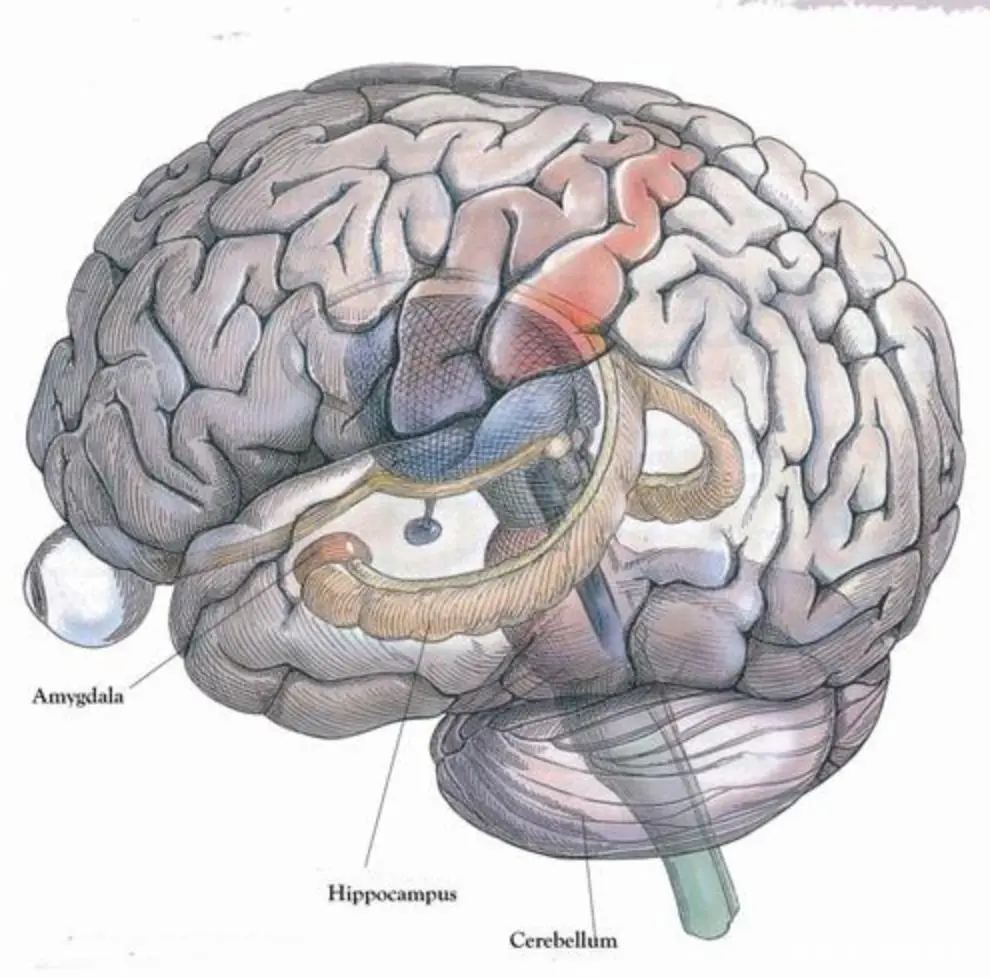I have taught you hundreds of times! Why can’t I remember? What are you thinking about? “How to boost up lazy child brain Did you teach it hundreds of times to no avail?
Do you have such experience? A new word, a word, an ancient poem, a text, the child has read it over and over again and again, and even copied it many times, but when it comes to it, it still cannot be remembered?
Say he has a poor memory, the type of “Ultraman”, the performance of the car, and the life of the idol are memorized by heart, but when it comes to “serious things”, the chain will fall off, a 5-sentence text, 3 words The dictation, taught hundreds of times and still can’t remember it, it’s really maddening people to smoke!

This problem is actually not because the child has a “bad attitude towards learning” or “naturally stupid”, but because the brain is born “loving to be lazy”.
The “lazy” brain
In the tens of thousands of years of human evolution, in order to cope with the shortage of food and energy, the first task of the body’s operation is to “conserve resources”. However, the brain, which only accounts for 2% of the body weight, consumes more than 20% of the body’s energy, which is not even the energy expended when thinking.
Studies have shown that those top chess masters who “sit all day” consume as much as 6,000 calories in one day, while in the 1984 chess game, Karpov, who experienced dozens of rounds of competition for five months , lost more than 10kg in weight, which made the organizers deeply concerned about his health and suspended the game.

In tens of thousands of years of evolution, in order to reduce energy consumption as much as possible, the brain has learned to build “shortcuts” for “repetitive things”.
For example, when a child is just learning to write, the brain needs to coordinate the visual input and the coordinated output of the hand muscles, and new connections must be established between neurons, which is very “energy-consuming”.
But gradually, as the number of times of writing increases, the brain forms a fixed “writing program”, and a “writing shortcut” is formed between neurons. Copying can be completed by lighting up a small number of neurons on the shortcut. There is almost no need to “overthink”, and energy consumption is greatly reduced.
Therefore, many people should have this experience: even if the brain is “travelling”, the transcription can still be completed correctly and smoothly.
It seems that you are concentrating on copying, but in fact your mind is not on the copied content at all, the brain is also dormant, only the neurons on the “writing shortcut” are activated, and these neurons have nothing to do with “memory”. relation.
This whole process is the result of the evolution of the human brain over tens of thousands of years. It is not that the child deliberately wants to “walk away”, but that the brain naturally enters such a “lazy” program.

Therefore, if a child wants to remember something, he must activate the memory-related area of the brain to excite the brain, instead of entering a lazy state of “taking shortcuts”.
1. Use “quizzes” to avoid brain “lazy”
In the traditional concept, we think that to remember something, we repeat it. But in fact, as mentioned earlier, the brain will create “shortcuts” for “repetitive things”: if one thing is repeated too frequently, it will affect memory, because the brain is dormant.
In Cognitive Nature, cognitive psychologists tested this theory experimentally by having one group read the booklet once a day, while the other group only read the same book on the first and seventh days booklet. Afterwards, on the test for both groups, those who read the book every day scored significantly lower than those who read the book twice.
What we have to do is not simple repetition for a short period of time, but to find ways to make the brain more tired.
What we want to increase is not the number of “reading” or “writing”, but the number of “recalling”, because only when the child “remembers” is the time when the brain is trying to remember.
What we want to increase is the number of “quizzes”, not longer recitation times.

First, you can let your child memorize it once, and then there is the “quiz”.
Of course, this will be forgotten, the child will stumble on memorization, and there will be some sentences that cannot be remembered. But this is the most critical moment, as long as the child remembers it once, he will be able to extract this information the next time. Therefore, we need to give the child more time to recall, instead of immediately reminding him that he has made a mistake and cannot recite it.
Second, the “quizzes” also need to be spaced.
There is no need to ask the child to memorize it thoroughly, it is enough to stumble, because there is still the next “test”.
Take the test again every one or two hours. Of course, before going to bed and after getting up in the morning are the most critical “recall” times. The important thing is to let children “think hard”, not hard to read, hard to copy.

2. Find the feeling of “brain hard work”
I remember when my youngest son just started to memorize words (about 5 years old), he couldn’t remember the words of several fruits. He repeated “apple-apple” a dozen times by himself, and he forgot it again after a while.
I told him: “Memorizing words is not just a matter of reading them. You have to make your brain work harder before you can remember them.”
After more than ten minutes, the child suddenly ran over and said, “I’m working hard! I remember the words, you ask me again?”
Ask again, sure enough.
Since then, the child’s memorization of words and texts has become significantly faster, because he has found the feeling of “brain working hard”.
In addition to letting the child feel for himself, there are other ways to force the brain to move:
- First draw a mind map, deconstruct the structure, and then recite it;
- First understand, repeat, and then recite;
- After the association content is compiled into a joke, then recite it;
- Associate into a picture, and then recite it; These are common memory methods. Different children can choose methods that are more suitable for themselves or related subjects, but in essence, they all force the brain to move.
3. Increase the “oxygen content” of the brain
If a child has been in class for a day and his brain is quite exhausted, it is very difficult to concentrate at this time because the brain is already “deoxygenated”.
Studies have shown that after sitting in the classroom for a day, after about 20 minutes of outdoor exercise, the oxygen content of the brain can be increased by 4 times! That’s why, the school will arrange “break exercises”.
When a child is “brain fatigued”, taking him out for a breather and a run is a very effective method.

4. Stress is a double-edged sword
A slight sense of pressure can excite the brain, and many memory methods take advantage of pressure, such as the pressure caused by pain and fear.
For example, when you want to remember to bring a pencil before going out, some memory methods will add “a blood hole in your hand with a pencil” to the clue… Such painful imagination can activate the brain and make us remember it more firmly.
However, other stressors affect children quite differently.
For example, the pressure of having to memorize today, taking an exam tomorrow, having a mother check, etc., for some children, these pressures are moderate, which can make them excited, memory faster and stronger.
But for others, the stress is so overwhelming that it activates the amygdala, secretes stress hormones, floods the entire brain with fear, severes the hippocampus from the prefrontal lobe, and leaves them thinking about nothing. stand up. The more they can’t remember, the greater the pressure, forming a vicious circle.

There are two things we can do:
First, understand and observe the child, and let the child understand himself, what kind of pressure excites him, what kind of pressure is too great for him, and give the child appropriate memory pressure according to his actual ability to bear;
Second, give your child normal stress levels. Take “mom wants to check homework” as an example, if she recites the wrong mother, she will be beaten. For the child, this matter becomes very stressful and makes his brain stagnate. But if it’s wrong, it’s okay, the stress of the event is less stressful, and the child’s brain is excited instead of fearful.
Because each child’s personality and situation are different, it is even more necessary for parents to adjust according to the child’s situation and response. More importantly, it is necessary to tell children this knowledge, so that they can learn to adjust their own pressure and achieve the best state of brain excitement.
Read more tips about health and fitness http://www.growmorehealth.com
